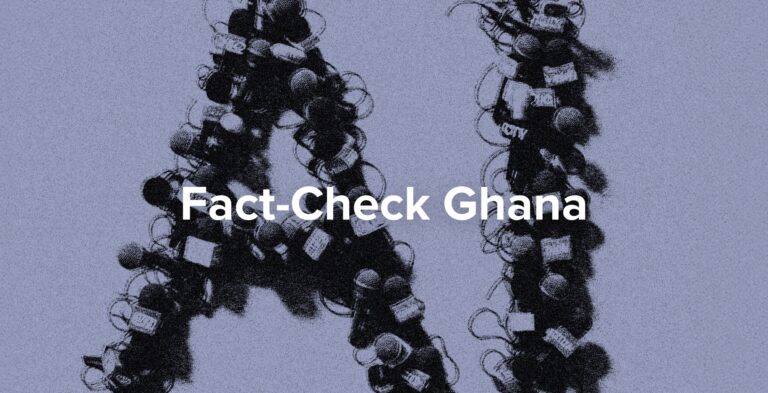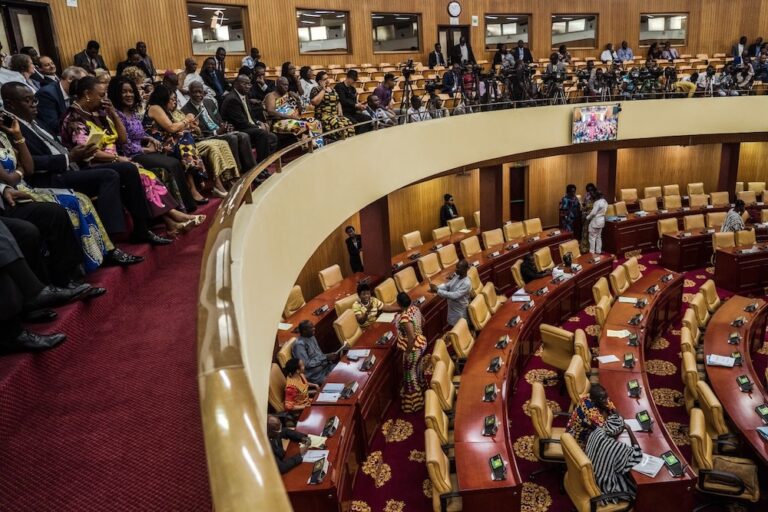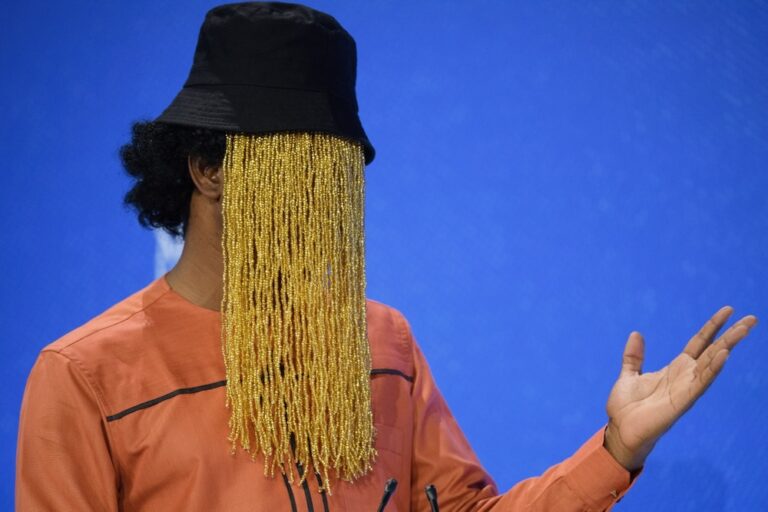(MFWA/IFEX) – On 2 November 2006, a group of journalists covering the trial of suspected drug criminals in an Accra regional court were threatened and insulted by sympathisers for taking photographs of the suspects. Florence Gbolu, of the Accra-based independent daily newspaper “The Chronicle”, told MFWA’s correspondent that the sympathisers attacked reporters when some of […]
(MFWA/IFEX) – On 2 November 2006, a group of journalists covering the trial of suspected drug criminals in an Accra regional court were threatened and insulted by sympathisers for taking photographs of the suspects.
Florence Gbolu, of the Accra-based independent daily newspaper “The Chronicle”, told MFWA’s correspondent that the sympathisers attacked reporters when some of them took photos of the suspects while they were being whisked into a police van after the day’s court session.
The journalist said the angry-looking supporters, including six well-built men, ordered them to surrender their cameras. The action of the supporters attracted a large crowd that caught the attention of court officials, including a High Court judge and police officers.
“Sensing danger, a police officer came to our rescue and escorted us to one of the empty courtrooms for a few minutes, before a High Judge escorted us out of the court premises,” Gbolu added.
More than six journalists have been victims of attacks, intimidation and harassment in the wake of a series of cocaine scandals that rocked the country during the second half of 2006.
The MFWA is concerned about the persistent violations of freedom of expression and the rights of journalists by sympathisers of the suspected drug dealers. We reiterate our call for the security agencies to send a strong message to the criminals’ supporters who carry out attacks on journalists. To let such criminal acts pass without consequence could give free reign to non-state actors to act with impunity.
The MFWA condemns these attacks and intimidation against journalists because they undermine democracy, restrict editorial independence and deny the public access to information by way of photographic images.


